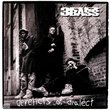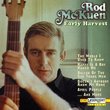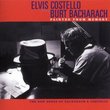| All Artists: The Magnetic Fields Title: Realism Members Wishing: 1 Total Copies: 0 Label: Nonesuch Original Release Date: 1/1/2010 Re-Release Date: 1/26/2010 Genres: Alternative Rock, Pop, Rock Style: Number of Discs: 1 SwapaCD Credits: 1 UPC: 075597982190 |
Search - The Magnetic Fields :: Realism
 | The Magnetic Fields Realism Genres: Alternative Rock, Pop, Rock
Magnetic Fields' third Nonesuch disc, Realism, is the flipside to the industrial pop of Distortion, the quartet's brilliant 2008 homage to, of all things, the clangorous sound of the Jesus and Mary Chain. While Distortion ... more » |
Larger Image |
CD DetailsSynopsis
Product Description Magnetic Fields' third Nonesuch disc, Realism, is the flipside to the industrial pop of Distortion, the quartet's brilliant 2008 homage to, of all things, the clangorous sound of the Jesus and Mary Chain. While Distortion was recorded quickly and noisily in the stairwells and rooms of the New York City apartment building to which singer-songwriter-bandleader Stephen Merritt was about to bid adieu for California, Realism was cut in the distortion-free environs of a Los Angeles studio, and its sound is as pristine as a plein-air painting. There are no drum kits to be heard, and the fascinatingly varied instrumentation - guitars, accordions, violins, cellos, tablas, banjos, tuba, even a smattering of mellifluous falling leaves - did not need to be plugged in. And, as with Distortion, the album credits emphasize: No Synths. With tongue only slightly in cheek, Merritt has taken to declaring Realism his "folk" album. To get the point across, there is an upbeat, sing-along number early in the set called "We Are Having a Hootenany." Merritt's inspirations, however, were the orchestrated, mostly British folk of the late sixties/early seventies--which owe as much to sixties psychedelia as to traditional music--and the work of Judy Collins, who stretched the boundaries of "folk" with the chamber-pop arrangements of such albums as In My Life and Wildflowers. Like Collins, Merritt favors variety and theatricality. She skipped from Jacques Brel to the Beatles; he goes from the trippy, toy-box melodies of "The Dolls' Tea Party" and "Painted Flower" to the foot-stomping rhythms of "The Dada Polka" (for which one only has to get up and "do something"). There's even a deceptively festive holiday number, "Everything Is One Big Christmas Tree," featuring a lusty chorus sung in German -- Kurt Weill in a holiday mood. In content, Merritt's songs veer between longing and loneliness, desire and dismissal, romance and revenge. Reality is as distorted as ever, and the characters who populate his songs are never just plain folk. As Jon Pareles of the New York Times put it in a review of Magnetic Fields' 2008 Town Hall concert, Merritt's songs are "elegantly phrased, understatedly sardonic tales of disillusionment. The loftier the dreams, the greater the letdown, an insight he plays for both chuckles and heartache." Along with his long-time band-mates Sam Davol, Claudia Gonson and John Woo, Merritt is joined again by vocalist Shirley Simms, (whose plaintive tone on Distortion lent poignancy to the murderous fantasy of "California Girls" and the erotic musings in "The Nun's Litany") and accordionist Daniel Handler (a/k/a novelist Lemony Snicket, with whom Merritt created the Gothic Archies' faux children's disc, The Tragic Treasury). Also on board: horn player Johnny Blood and violinist Ida Pearle, familiar to fans of Magnetic Fields' earlier, independently released work. Similarly Requested CDs
|
CD Reviews3.5 stars-An album as puzzling as its creator B. Martin | 01/28/2010 (3 out of 5 stars) "The Magnetic Fields' latest album has been described as a companion piece to 2008's "Distortion" and labeled as a "folk" album. But the best way to describe it is to say that it is as beguilling and difficult to pin down as Stephin Merritt himself. That is not necessarily a bad thing since those qualities compel the listener to keep coming back to the album in order to decipher its many possible meanings. Realism does away with the distorted guitars of the band's last effort and finds them returning to the chamber pop sound of 2004's "i". The songs are full of acoustic guitars, strings, piano and other natural instruments that lend the music a more realistic (a hint at the album's title perhaps?) feel. But while the music sounds beautiful and pristine, the songs are a bit befuddling. Like Merritt himself, they are a mixture of sincerity, irony, caustic wit and whimsy. Merritt loves to keep his listeners off balance and guessing at the meanings behind his compositions. The album's opener, "You Must be out of Your Mind" is a straightforward, beautifully honest tune about the futility of trying to outrun one's demons, whatever they may be. But after that, we get songs like the catchy but goofy "We are Having a Hootenanny" and "The Doll's Tea Party" which I swear seems like a song Syd Barrett might have dreamed up. There is also a Christmas song featuring a German chorus. Is Merritt being cynical or playful on these songs? Part of the allure of "Realism" is trying to figure out his true intentions. The album is also just enjoyable to listen to. After the murky mess of "Distortion", it's refreshing to hear Merritt rehoning his pop songwriting skills. The songs on "Realism" aren't as collectively excellent as on the gruop's best efforts, but they're still a delight to listen to and they keep drawing you back for repeat listens. That is the signature mark of a good Magnetic Fields record, and "Realism" is no different." Let's Talk Real, Here s.t. | Philadelphia | 01/27/2010 (2 out of 5 stars) "My first exposure to Stephin Merritt and the Magnetic Fields was the three-volume masterpiece "69 Love Songs." I loved this album so much that when its follow-up, "i" was released in 2003, I thought it would be inevitable for me to be disappointed with it in some way. And, not surprisingly, I was. Unfortunately, years have passed, and "i" still disappoints. I'm a huge fan of all of the Merritt releases from "Distant Plastic Trees" (1993) to the 6ths "Hyacinths and Thistles" (1999). Most aren't perfect, but they all had many moments of true brilliance. Merritt, at his best, playfully and subversively accentuates the vacuous and formulaic nature of pop music, and yet you can't help yourself being affected by his formula, obvious though it may be. On most of "i," however--as well as most of 2008's "Distortion", Merritt's solo work, and his latest album with the Gothic Archies--the formula is not only obvious, it's also tired. Almost perfunctory. The newest Magnetic Fields release, "Realism," is perhaps the best of their most recent albums, the so-called "No Synth" Trilogy. Where "i" and "Distortion" both feature a tossed-off minimalist approach that is often maddeningly dull, "Realism" boasts a variety of instruments, with comparatively lush and intricate arrangements, not to mention some varied vocal approaches. As a result, the songs don't feel as tired and joyless as most of those on the previous two albums. But this one is still pretty disappointing. First, while the arrangements can be nice, at least half of the songs on the album still feel tossed-off. Stephin Merritt's never been the most technically ambitious composer, but his new work is so lazily homogeneous that everything is starting to sound at least vaguely identical. For instance, "Walk a Lonely Road" recalls "Xylophone" and "Xavier Says," while "You Must Be Out of Your Mind" borrows from "The Book of Love," "I Don't Believe You," and "California Girls." Even if "Lonely Road" is better than "Xavier Says," such post hoc improvements are hardly thrilling. And a bunch of the tracks are just plain throwaways. "The Dolls' Tea Party" is a great example of how "fun" has since evolved into "forced," and "damn annoying." And it's not the only one: "Everything is One Big Christmas Tree," "Painted Flower" and the "Dada Polka" are all hollow shells of much livelier songs. 69 Love Songs had its share of throwaways, some of them a little grating on the ears, but that was at most 1/10 of the total songs. Here, I have to skip half of the album just to keep my hair attached to my scalp. A halfway decent pop musician would have taken the best tracks from these three albums and released one solid LP. Let's not even get into what a "genius" would have done... Recommended only to those who think that Merritt et al. can never go wrong. For everyone else, get the classic albums! " A rewarding listen worldbeat23 | 02/08/2010 (5 out of 5 stars) "I have put on this album several times since I bought it, and it has grown on me with each listen. I enjoy hearing artists I love change and grow musically and I agree with those who say it is a positive one. It is unfair to compare everything Stephen Merritt puts out to 69 love songs when he has done some truly beautiful work since. Realism brings you into the forgotten world of music before the era of rock n roll and jazz. Yes, folk music is at this album's heart. This means it is not an album for everyone, but what is?
What makes the album amazing is how Stephen Merritt manages to take classic folk themes and make them relevant to today. The songs may speak in terms of "hoedowns" and "pretty dresses", but they effectively and ironically present our modern issues of online dating ("We Are Having A Hootenanny") and the impossible expectations of women's appearances and actions ("Doll's Tea Party"). The love songs on the album are just as simultaneously beautiful and heartbreaking as they ever were in the Magnetic Fields incredible history ("I Don't Know What to Say", "From A Sinking Boat"). Give Realism a chance. Take it for what it is. A rewarding listen awaits you...and wondering what sort of journey Stephen Merritt will lead his bandmates into next." |

 Track Listings (13) - Disc #1
Track Listings (13) - Disc #1








